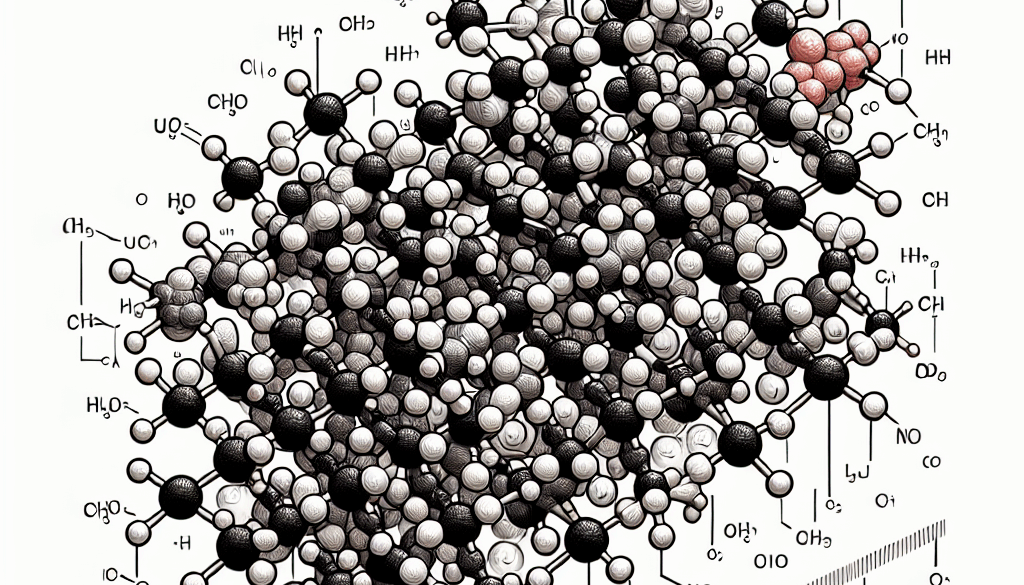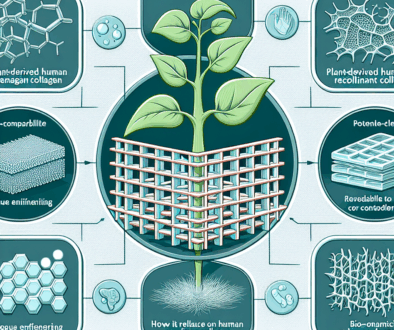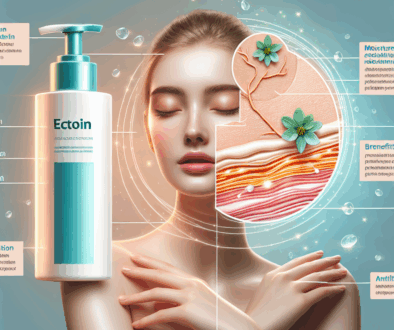Poly Beta Hydroxybutyric Acid Explored
-
Table of Contents
Poly Beta Hydroxybutyric Acid Explored: A Comprehensive Guide
Poly Beta Hydroxybutyric Acid (PHB) is a biopolymer that has garnered significant attention due to its biodegradable nature and potential as an alternative to conventional plastics. This article delves into the properties, production, applications, and environmental impact of PHB, providing a thorough understanding of this important material.
Understanding Poly Beta Hydroxybutyric Acid
Poly Beta Hydroxybutyric Acid, commonly known as PHB, is a type of polyhydroxyalkanoate (PHA), a class of biodegradable plastics derived from microbial fermentation processes. PHB is produced naturally by bacteria as a form of energy storage molecule, which they metabolize when other common energy sources are not available.
Properties of PHB
PHB is known for its thermoplastic properties, which make it an excellent candidate for applications traditionally dominated by petroleum-based plastics. Some of the key properties include:
- Biodegradability: PHB decomposes into carbon dioxide and water under composting conditions, making it environmentally friendly.
- Biocompatibility: Due to its non-toxic nature, PHB is suitable for medical applications, including sutures and drug delivery systems.
- Thermal Properties: PHB has a melting point similar to that of polypropylene, making it suitable for standard plastic processing techniques.
- Barrier Properties: PHB exhibits excellent barrier properties against oxygen and carbon dioxide, which are advantageous in packaging applications.
Production of PHB
The production of PHB is primarily achieved through bacterial fermentation. The process involves the cultivation of microorganisms that possess the ability to synthesize PHB from sugars or lipids. The steps include:
- Cultivation: Microorganisms are grown in controlled conditions with a carbon source that serves as a substrate for PHB production.
- Accumulation: Under specific conditions, these microorganisms accumulate PHB within their cells.
- Recovery: PHB is then extracted from the microbial biomass through various separation and purification processes.
Advancements in genetic engineering and biotechnology have led to the development of genetically modified organisms (GMOs) that can produce PHB more efficiently and cost-effectively.
Applications of PHB
Due to its versatile properties, PHB finds applications in various industries, including:
- Packaging: Used in food and pharmaceutical packaging due to its biodegradability and excellent barrier properties.
- Agriculture: Employed in the manufacture of mulch films and controlled-release fertilizers.
- Medical: Ideal for making sutures, implants, and drug delivery systems because of its biocompatibility and strength.
- Consumer Products: Used in disposable items such as cutlery, straws, and bags.
Environmental Impact of PHB
The environmental benefits of PHB are significant, particularly in terms of reducing plastic pollution and carbon emissions. As a biodegradable material, PHB does not contribute to the persistent plastic waste accumulating in landfills and oceans. Moreover, since PHB is derived from renewable resources, its production has a lower carbon footprint compared to conventional plastics.
Challenges and Future Prospects
Despite its advantages, the widespread adoption of PHB faces several challenges:
- Cost: The production cost of PHB is currently higher than that of conventional plastics, primarily due to the cost of raw materials and processing.
- Performance: While PHB offers comparable properties to some plastics, it may require modifications to improve its performance in specific applications.
- Market Development: Developing market demand for biodegradable plastics like PHB is crucial for achieving economies of scale.
Research is ongoing to overcome these challenges, with efforts focused on improving production techniques, developing cost-effective feedstocks, and enhancing the properties of PHB through copolymers and blends.
Conclusion
Poly Beta Hydroxybutyric Acid represents a promising solution to the environmental problems posed by synthetic plastics. With its biodegradability, biocompatibility, and versatile applications, PHB could play a crucial role in the transition towards sustainable materials. Continued research and development, along with supportive policies and market development, are essential to realize the full potential of PHB in the global market.
Explore ETprotein’s Protein Products
In addition to exploring innovative materials like PHB, it’s also essential to consider sustainable nutrition solutions. ETprotein offers a range of high-quality, organic bulk vegan proteins and elite nutritional ingredients. Their products are ideal for various industries, including food and beverage, sports nutrition, and health and wellness. For more information or to sample their products, please contact sales(at)ETprotein.com.
ETprotein is Hydroxybutyric acid Factory Manufacturer and Supplier in China, Check further information by visiting the Hydroxybutyric acid Product Page
Hydroxybutyric acid Product Page
Request Quotation and Samples of Hydroxybutyric acid from ETprotein
About ETprotein
ETprotein, a reputable protein and elite nutrition ingredients Hydroxybutyric acid Chinese factory manufacturer and supplier, is renowned for producing, stocking, exporting, and delivering the highest quality organic bulk vegan proteins and elite nutritional ingredients Hydroxybutyric acid. They include Organic rice protein, clear rice protein, pea protein, clear pea protein, watermelon seed protein, pumpkin seed protein, sunflower seed protein, mung bean protein, peanut protein. Their offerings, characterized by a neutral taste, non-GMO, allergen-free attributes, cater to a diverse range of industries. They serve nutraceutical, pharmaceutical, cosmeceutical, veterinary, as well as food and beverage finished product distributors, traders, and manufacturers across Europe, USA, Canada, Australia, Thailand, Japan, Korea, Brazil, and Chile, among others.
ETprotein specialization includes exporting and delivering tailor-made protein powder and finished nutritional supplements. Their extensive product range covers sectors like Food and Beverage, Sports Nutrition, Weight Management, Dietary Supplements, Health and Wellness Products, and Infant Formula, ensuring comprehensive solutions to meet all your protein needs.
As a trusted company by leading global food and beverage brands and Fortune 500 companies, ETprotein reinforces China’s reputation in the global arena. For more information or to sample their products, please contact them and email sales(at)ETprotein.com today.












